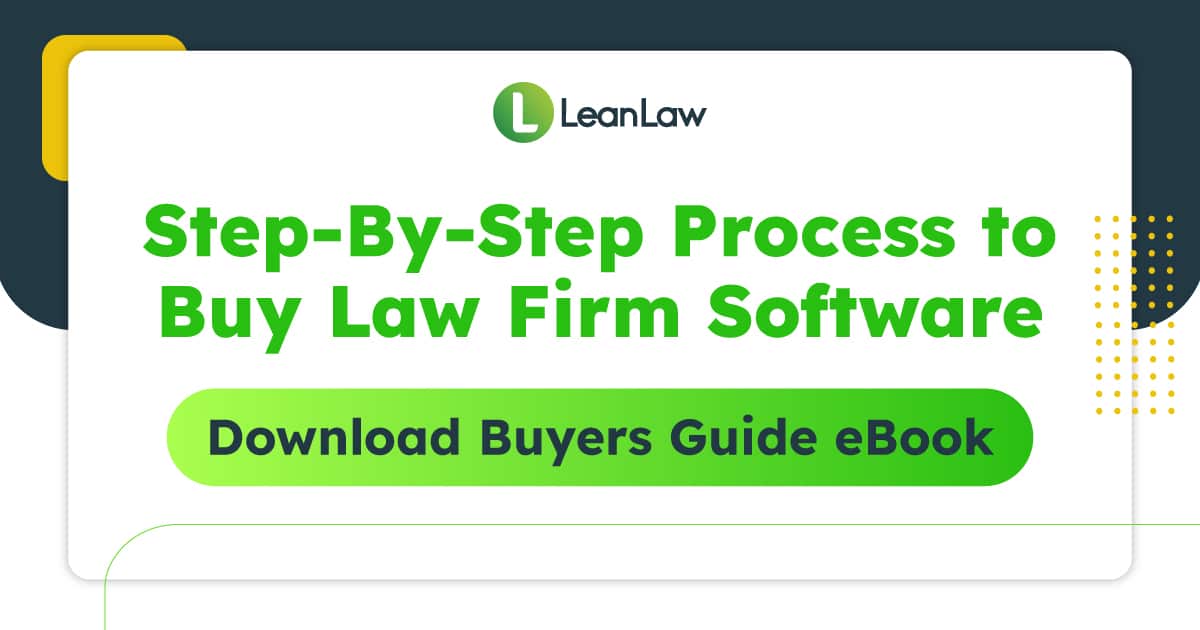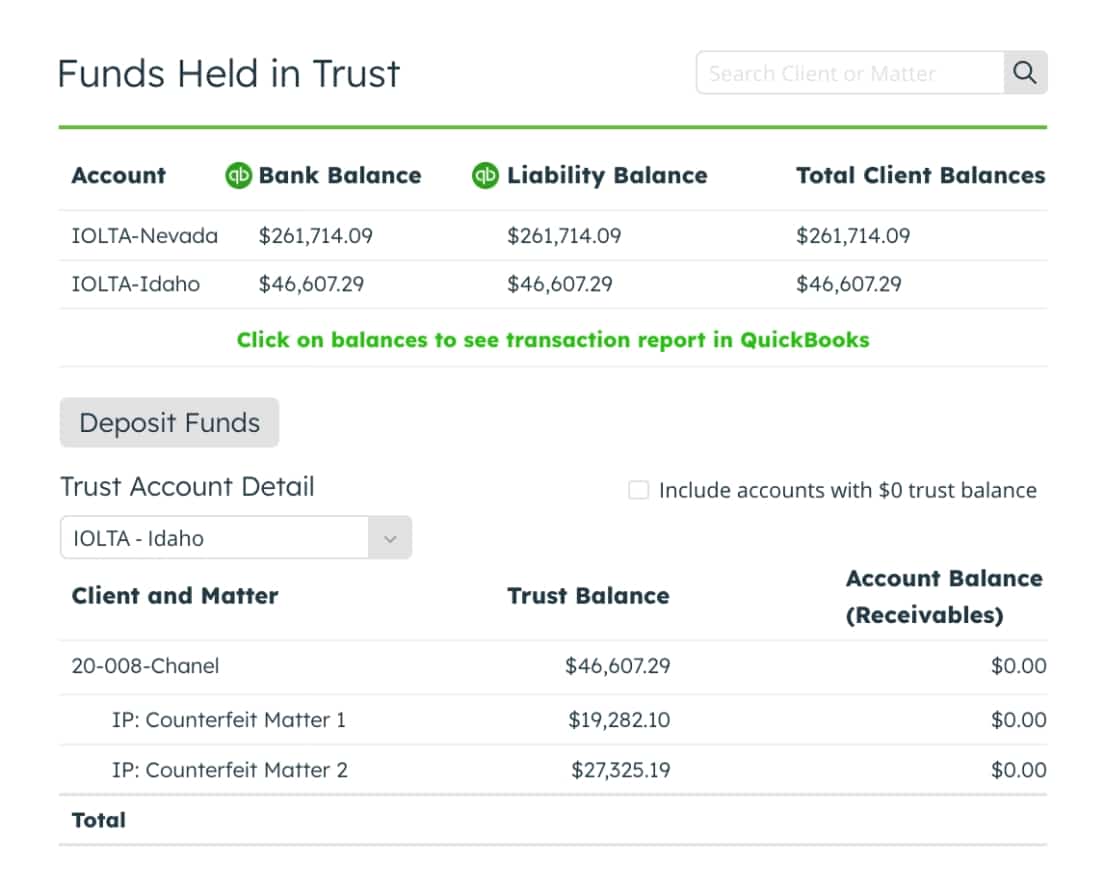
Has your staff started to complain about your current legal practice management software?
Has it been a while since you looked at the software tools you have in place and wondered if they are serving your practice as well as they could?
Have clients complained about the lack of certain software tools that you don’t have available to them?
In today’s fast-paced legal landscape – where competition is fierce and client expectations are high – it is essential to have the most robust and intuitive practice management software possible for your team to work efficiently and effectively.

Key Takeaways
- All-in-one legal practice management software vendors have lost the battle in trying to convince law firms that the only way they can effectively manage their firms is by investing in an all-inclusive practice management software system like they’ve been selling to them for years.
- Legal professionals are savvy enough to know that they now have lots of different software options when it comes to client management, case management, document assembly and management, and their legal billing and accounting practices. And, they know that building their own tech stack with these various software tools is going to give them the control and customization they have been searching for.
- Knowing what practice management software tools to put into a tech stack can be a bit tricky, but starting with the following four basics is a good way to begin.
Though most of us may find technology to be a bit intimidating, it’s always a good idea to spend some time making sure that the current software tools you have in place are the best for your law firm’s business.
For years, most legal professionals were led to believe that all-in-one law practice management software systems were the only way to run a law firm effectively.
But as technology has continued to advance and more software systems can integrate together, it’s become much more common for law firms to create their own law practice management software systems based on their unique needs.

Let’s take a look at some of the best alternative software applications that work together to replace the antiquated all-in-one law practice management software systems of the past so you can decide if you need to consider some changes to your current software tools.
Best in Breed Legal Software VS All-in-One: What’s the Right Law Practice Management Software Style for My Law Firm?
For some law firms, the idea of creating their own tech stack of software tools may sound daunting.
Not only that, but many legal professionals have been told by the large all-in-one practice management vendors that trying to create their own tech stack of software tools is “too complicated.”

They have been convinced in the past that it would make more sense for them to just adopt (and pay a high price for!) an all-in-one type of practice management system.
Today, legal professionals are more savvy than that.
They know that advancements in technology means they can come up with their own tech stacks based on what their staff needs to run a successful law firm and what their clients want in order to be able to communicate effectively and use their services more efficiently.
But…many firms still need some guidance in order to determine what exactly that customized tech stack should look like.
This is where tech experts like LeanLaw can help.
Helping law firms put together a “best of breed” tech stack is not complicated. In fact, it’s more straightforward than you’ve been led to believe in the past.
Here are the 4 most important software applications that will get mid-sized and small law firms heading toward designing the perfect, custom-made tech stack for their firm.
LeanLaw
LeanLaw is a powerful and comprehensive legal billing and accounting practice management tool designed specifically for law office accounting. LeanLaw helps to streamline legal accounting operations, improve efficiency, and enhance profitability. Here are some reasons why LeanLaw is a game-changer for law firms all all sizes and specialties:
Simplified Time Tracking and Billing: Time tracking and billing are essential tasks for law firms, and LeanLaw excels in simplifying these processes. It offers an intuitive interface for capturing billable time and expenses, allowing attorneys to easily record their activities, assign them to specific matters, and generate accurate invoices. With LeanLaw’s automated time tracking features, your firm can efficiently capture every billable minute and ensure they are properly compensated for their work.
Trust Accounting Management: Trust accounting can be complex and time-consuming, but LeanLaw provides specialized features to streamline the trust accounting management for law firms. It allows you to track and manage your client’s trust accounts, record trust transactions, generate trust ledgers, and reconcile trust balances. By automating trust accounting processes, LeanLaw ensures compliance with any of the ethical and legal requirements in your area, reduces the risk of errors, and simplifies trust accounting reconciliation.

Seamless Integration with QuickBooks Online: LeanLaw integrates seamlessly with QuickBooks Online, one of the most popular accounting software solutions for all types of businesses, law firms included. This integration eliminates the need for manual data entry, as financial data from LeanLaw automatically syncs with QuickBooks Online. It ensures accurate and up-to-date financial information, simplifies the invoicing process, and enables comprehensive financial reporting and analysis.
Advanced Reporting and Analytics: LeanLaw provides law firms with powerful reporting and analytics capabilities above and beyond what most regular accounting software can provide. It offers a range of customizable reports that provide insights into key financial metrics, matter profitability, time utilization, and more. These reports can then help you make informed decisions, identify areas for improvement, and track the financial performance of your attorneys and firm.
Customizable Workflows: Every law firm has unique processes and workflows, and LeanLaw legal software recognizes this by offering customizable features. Law firms can tailor LeanLaw to their specific needs which allows you the ability to optimize LeanLaw according to your specific practice requirements and workflows.
Mobility and Remote Access: With the increasing need for mobility and remote work, LeanLaw offers the flexibility to access essential information and perform tasks from anywhere your attorneys or support staff may be working. It is a cloud-based solution, enabling attorneys and staff to collaborate on matters from any device with an internet connection.

QuickBooks Online
QuickBooks Online is a powerful tool for law firms due to its comprehensive features and capabilities that cater to the specific financial needs of legal practices. Here are a few reasons why QuickBooks Online is highly regarded among law firms:
Easy and Efficient Accounting: QuickBooks Online simplifies the accounting process, allowing law firms to easily manage their finances. It provides a user-friendly interface with intuitive navigation, making it accessible even for those without extensive accounting knowledge. When paired with LeanLaw, you create a powerful billing and accounting system that streamlines everything from trust accounting to bank reconciliations in a way that is as law firm-customized as you can get.
Customized Chart of Accounts: Law firms have unique accounting requirements, and QuickBooks Law Firm Online allows for the creation of a customized chart of accounts tailored to legal practices. This enables specific categorization of income, expenses, and liabilities that align with the legal industry standards. By having a properly structured chart of accounts, law firms can gain better insights into their financial performance and effectively manage their finances.

Trust Accounting Management: Trust accounting is a crucial aspect for law firms that handle client funds. QuickBooks Online and LeanLaw together will offer robust trust accounting features, allowing firms to set up trust/retainer accounts and generate reports to comply with trust accounting regulations. It provides the ability to record deposits and disbursements, reconcile trust accounts, and produce comprehensive trust account statements.
Time and Expense Tracking Integration: QuickBooks Online can integrate with LeanLaw’s time tracking and expense management tools to help enable the seamless transfer of billable hours and expenses directly into QuickBooks, eliminating the need for manual data entry. It streamlines the billing process, improves accuracy, and ensures that law firms capture all billable activities for proper invoicing and client reimbursement.
Reporting and Financial Insights: QuickBooks Online offers a wide range of financial reports that provide valuable insights into the financial health of a law firm. From profit and loss statements to balance sheets and cash flow reports, these financial reports help law firms monitor their performance, identify trends, and make informed business decisions. QuickBooks Online’s reporting capabilities provide law firms with the necessary financial transparency to drive growth and profitability.
Google Docs and Microsoft Office Online
Google Docs and Microsoft Office Online are both powerful office suite tools that offer numerous benefits for law firms. Here’s why these platforms will be a perfect addition to your tech stack:
Collaboration and Real-time Editing: Both Google Docs and Microsoft Office Online provide robust collaboration features that allow multiple users to work on various administrative tasks and/or documents simultaneously. This capability is particularly valuable in a law firm setting, where all sorts of matter management, client management, and document management happen frequently and by multiple individuals. Attorneys and staff can collaborate in real time, make edits, leave comments, and track changes, ensuring seamless consistency and efficient document review processes.
Accessibility and Mobility: One of the key advantages of Google Docs and Microsoft Office Online is their cloud-based nature. This means that users can access their documents from any device with an internet connection. This flexibility is especially beneficial for legal professionals, as it enables attorneys and staff to work remotely, access critical files on the go, and collaborate seamlessly even when not physically present in the office.
Document Management and Organization: Both platforms offer robust document management features that allow law firms to organize, store, and retrieve documents efficiently. Users can create folders, apply labels, and use search functionalities to quickly locate the necessary files. With document version control, law firms can track document revisions, ensure compliance, and maintain a centralized repository of all important legal documents.
Integration with Other Tools: Google Docs and Microsoft Office Online integrates seamlessly with other legal software and tools commonly used in law firms. This integration ensures that law firms can leverage the full power of their tech stack and don’t need to spend big amounts of money investing in a comprehensive legal software system that claims to do a better job than either of these two platforms.
Security and Compliance: Both Google Docs and Microsoft Office Online prioritize data security and offer robust measures to protect confidential legal information. These platforms implement encryption and data backup systems to safeguard sensitive data. They also comply with industry-standard security and privacy regulations, providing law firms with peace of mind when it comes to data protection.
Rich Formatting and Document Creation Features: Google Docs and Microsoft Office Online offer a wide range of formatting options and document creation tools to create professional-looking and customizable legal documents. Users can easily format text, add tables, create footnotes, insert citations, and use other essential features for legal document preparation. These tools help streamline document creation processes, enhance visual appeal, and ensure adherence to legal formatting standards.

Gmail or Outlook
Gmail and Outlook are both powerful email communication tools that offer numerous advantages for law firms. Here’s why these platforms are essential components of a law firm’s tech stack:
Professional Email Communication: Gmail and Outlook both can provide law firms with professional email services that are widely recognized and trusted. Having a branded email address (e.g., [email protected]) can help to enhance your firm’s credibility and professionalism when communicating with clients, colleagues, and other stakeholders in the legal industry.
Schedule a demo
Robust Email Management: Both Gmail and Outlook offer advanced email management features, allowing law firms to effectively manage their email correspondence. These platforms provide good search capabilities, email filtering, folder organization, and labeling options to help users keep their inboxes organized and quickly locate important messages. This is particularly crucial in the legal field where managing and retrieving emails efficiently is essential.
Seamless Integration with Calendar and Scheduling: Gmail and Outlook seamlessly integrate with calendar and scheduling tools, making it easy for law firms to manage appointments, meetings, and deadlines. Users can create events, send meeting invitations, and receive notifications, ensuring that everyone stays on top of their schedules and important dates. These features help streamline workflow management and improve productivity within the firm.
Mobile Accessibility: Both Gmail and Outlook offer mobile apps that allow users to access their email accounts on the go. This mobility is particularly beneficial for attorneys who frequently travel or work remotely. Lawyers and their staff can stay connected, respond to urgent emails, and access important attachments from their mobile devices, ensuring seamless communication and productivity no matter their location.
Advanced Security Measures: Gmail and Outlook prioritize email security and implement various measures to protect against cyber threats, phishing attacks, and unauthorized access. These platforms employ robust spam filters, email encryption, and multi-factor authentication to safeguard sensitive client communications and confidential information. Law firms can trust that their email communications are secure and comply with industry-standard security protocols.
Integration with Productivity Tools: Gmail and Outlook integrate seamlessly with the other legal management software tools suggested for your tech stack. Users can easily attach files from cloud storage platforms, collaborate on documents, and share information directly from their email interfaces. This integration enhances workflow efficiency and makes collaborating with others much easier.
Efficient Email Search and Discovery: Law firms often deal with large volumes of emails and need efficient search capabilities to retrieve specific communications. Gmail and Outlook provide powerful search functionalities that allow users to search by client intake date, keywords, sender, recipient, and other criteria. This saves time and ensures that important emails are easily located for case management, client communication, reference, or compliance purposes.

LeanLaw: Your Start to the Best Law Practice Management Tech Stack Possible!
If you are ready to dive into designing your best law practice management tech stack, reach out to LeanLaw for help.
As a firm that was created by legal professionals for legal professionals, LeanLaw understands the frustrations and joy that legal technology can bring.
No legal professional wants to wrestle with software that’s outdated, complicated or simply not capable of doing the job you need done. Come see what LeanLaw has created and why your tech stack is soon going to be working for you and not against you anymore.




